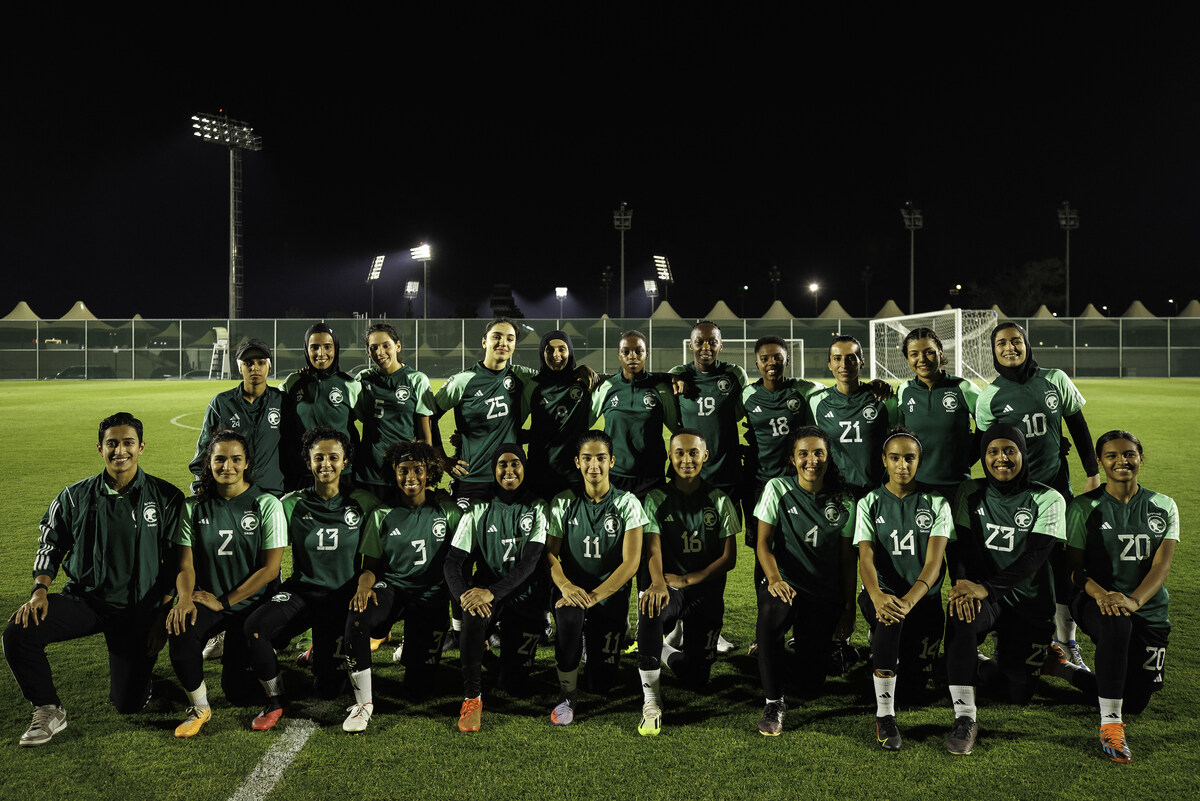Taif, Saudi Arabia – As Cristiano Ronaldo and Neymar pack Saudi stadiums, a quieter but equally dramatic transformation is unfolding for women’s professional football, which didn’t even exist in the kingdom five years ago.
On a recent evening in the mountain city of Taif, the Saudi women’s national team ran through a one-touch passing drill ahead of a game against Pakistan, the latest in a series of friendlies intended to give the players some much-needed match experience.
The squad only formed two years ago and entered the FIFA rankings in March, at 171st place.
That milestone followed a string of firsts last year, from an inaugural international match against the Seychelles -– a 2-0 win –- to the establishment of a domestic women’s premier league and a formal bid to host the 2026 AFC Women’s Asian Cup.
All told, it has been a head-spinning few years for Saudi women who weren’t even allowed to attend football matches until January 2018, let alone play at the professional level.
Yet 22-year-old midfielder Layan Jouhari told AFP she and her teammates were measuring their progress “one step at a time”, even as they nurture ambitious long-term goals like playing at the World Cup one day.
“I watched the previous World Cup before this just out of curiosity and interest, but this year’s World Cup was different,” Jouhari said.
“I watched it with a different perspective, like these are now my opponents.”
Reforms and skepticism
The eager Saudi players are standard-bearers for broader changes afoot in Saudi Arabia, a conservative petro-state trying to open up to the world while shifting away from fossil fuels.
In recent years, key restrictions that made the kingdom a magnet for criticism from women’s rights activists have been lifted, although critics argue that legal discrimination remains in place in areas like divorce and child custody, and that women are frequently ensnared in an ongoing crackdown on dissent.
A FIFA+ documentary released last month tracks how the national team has seized on new freedoms, contrasting the hostility its members once received for pursuing a “masculine” sport with today’s new era of deep-pocketed government support.
A press release for the film also highlights fans of the team outside Saudi Arabia, notably a social media post from the Pele Foundation describing its first FIFA match as “a historic day not only for you, but for everyone who loves football”.
But not everyone is keen to fully embrace the Saudi football project.
Talks this year about the Saudi tourism board sponsoring the World Cup drew criticism from co-hosts New Zealand and Australia as well as US star Alex Morgan before FIFA announced in March no deal had been reached.
Monika Staab, the first coach of the Saudi national team who is now technical director, told AFP that critics would benefit from seeing the changes in Saudi Arabia up close.
“Someone who is not knowing what is happening here, I always recommend, come here to Saudi, have a look -– witness yourself what is happening,” she said.
On a mission
For many national team players, football was a fact of life well before Saudi Arabia began championing women’s sports under Crown Prince Mohammed bin Salman’s Vision 2030 reform agenda.
“Football has been around in my family for as long as I remember. My older sisters used to play football and they made me fall in love with the game,” said Bayan Sadagah, the 28-year-old team captain.
The new opportunities, however, have led her to consider quitting her day job as a nurse so she can focus on “one path”.
The influx of international stars to the men’s game gives added inspiration.
Jouhari described obsessing over videos of French star N’Golo Kante as a girl.
Now they are both midfielders for the club team Ittihad — Kante on the men’s side, Jouhari on the women’s — and Jouhari can’t wait to meet him, though she says she “might lose my words” when it actually happens.
For Staab, who has worked with women’s programmes in more than 90 countries, the focus is squarely on what her own players might achieve.
“I’m only interested in women’s football because I want women’s football to grow, I want women’s football to develop — that is my mission,” she said.








